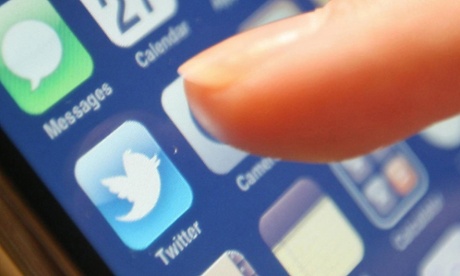
Enthusiastic Twitter users are currently reeling from a huge shift in the way the omnipresent social network functions. The owners and operators of Twitter have introduced a virtual-world altering shift, on a par with the collapse of the Roman Empire in ancient times, or the first demonstration of nuclear weapons in the 20th century. Understandably, people are shocked, outraged, exasperated, even scared in some cases.
For those of you not on Twitter, what happened is this: until now, if you liked a tweet, you had the option of tagging it as a “favourite”, via a little yellow star icon underneath it. Now, this option is gone, taken from us without warning and cast into the endless void never to return, like George Osborne’s credibility. Instead of “favourites”, you now have to “like” a tweet, and instead of a yellow star, it’s a red heart. Obviously, this is an unspeakable outrage, with some proposing “extreme” measures to address it.
If you are a non-Twitter user, you’d be forgiven for starting to back away at this point, as you would from someone you’d just met at a party who suddenly launches into a furious rant about the space lizards who are reading his thoughts via the transmitters in his teeth. Admittedly, it seems like a ridiculous thing to get worked up about from an objective perspective. Humans are rarely so logical though, particularly when it comes to online engagement.
But whereas most people have written off this favourite/like move as Twitter attempting to simplify the system to appeal to new users, a scientific analysis suggests a far more worrying possibility: Twitter is actively trying to kill off its regular users. A very bold claim perhaps, but hear me out.
A study from earlier this year showed a correlation between complaining on Twitter and the incidence of heart disease, even going so far as to say that Twitter complaining was a better indicator of eventual heart disease than more classic factors, like obesity or smoking. Of course, many scientists like to point out that correlation does not equal causation, and since they started doing it I’ve noticed fewer people making that mistake, so well done everyone. It would also be far more logical to conclude that complaining on Twitter is another symptom of the factor causing heart disease, not the cause itself.
But, just for a moment, let’s assume it’s not. Let’s assume that ranting and raving on Twitter is very bad for your health. It’s not so far-fetched; we’re often told not to bottle up anger, but letting it all out whenever we want could actually be very bad for us, so maybe complaining on Twitter is genuinely bad for us. Could it be that the owners of Twitter are actively exploiting it to kill off their current users? Think about it: there have been a number of surprising and unsettling changes to the site lately. As well as this heart and like this, there was the recent introduction of polls. Before that, the introducing of gifs, and promoted tweets, and the “while you were away” feature, and many more things.
Individually, these things are of little consequence. However, for the more enthusiastic/obsessed Twitter users, they add up. People like to have a routine, or habit, where they know what to expect and how to deal with it, the oft-referenced comfort zone. When this comfort zone is disrupted by unexpected and uncontrollable alterations, it could easily act as a stressor.
Stressors, causes of stress, make people angry and impact upon health. This would undoubtedly end up resulting in increased complaining on Twitter, which leads to, as we’ve seen, heart disease.
All the changes on Twitter would only be so stressful to the more constant users who are more familiar with the setup and interact with it more. Eventually, this stress build up could cause them to keel over, clutching their chest, half way through typing out an ironic hashtag. But why? Why would Twitter do something so extreme?
Well, these users are also the ones more likely to complain about changes, constantly and fiercely resisting Twitter’s attempts to update or modify the network. When a company is desperate to make money, a stubborn user base is the last thing it needs. It would be better and cheaper if they all just… went away. Twitter could even sell off the more developed and popular accounts to the highest bidder, boosting their revenue further. Is this really that ridiculous? Remember that Facebook admitted to running experiments on their users without them knowing, and Twitter has always been the “edgier” social network, so is actively trying to kill users so far-fetched?
The answer is yes, of course it is. It makes no sense. But one of the main complaints about the recent change is that people don’t necessarily “like” the things they’d previously favourite. After reading this, the “like” button may not be seen as so much a positive thing but an example of an attempt at wholesale slaughter. This may help people come to terms with the change, and stop complaining. This is important. Lives are at stake!
Dean Burnett is on Twitter and will be for as long as he can last. @garwboy

